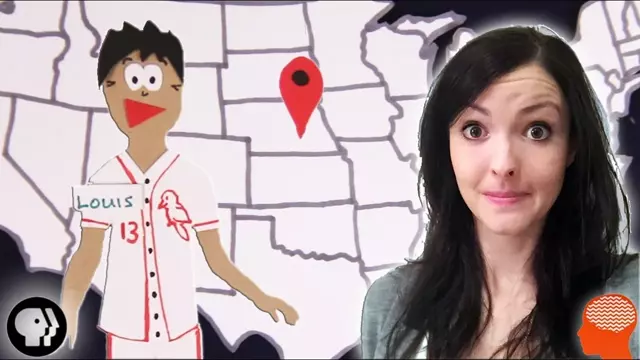2015-03-12
[unlisted] 693K views, 6.03K likes, 640 dislikes audio only
We love ourselves, and our names, more than we consciously realise. Research has found this implicit egotism has some pretty interesting effects.
Twitter: https://twitter.com/nessyhill Instagram: http://instagram.com/nessyhill
SUBSCRIBE to BrainCraft! Click here: http://ow.ly/rt5IE ↓ MORE LINKS BELOW ↓
BrainCraft is written and hosted by Vanessa Hill (https://twitter.com/nessyhill) for PBS Digital Studios. Talking psychology, neuroscience & why we act the way we do.
Sound design: Joel Werner (http://joelwerner.com)
Research: Rachelle Oldmixon (https://twitter.com/rachelleishere)
Keep in touch!
Twitter https://twitter.com/nessyhill
Instagram https://instagram.com/nessyhill/
Tumblr http://braincraft.tumblr.com
Facebook https://www.facebook.com/Braincraft
Last week on BrainCraft: 4 Lesser-Known Scientific Discoveries! (And the people behind them) /youtube/video/wv-BvwRYiXE
References:
Pelham, B. W., Mirenberg, M. C., & Jones, J. T. (2002). Why Susie sells seashells by the seashore: implicit egotism and major life decisions. Journal of personality and social psychology, 82(4), 469.
Polman, E., Pollmann, M. M., & Poehlman, T. A. (2013). The Name-Letter-Effect in Groups: Sharing Initials with Group Members Increases the Quality of Group Work. PloS one, 8(11), e79039.
http://journals.plos.org/plosone/article?id=10.1371/journal.pone.0079039
Dyjas, O., Grasman, R. P., Wetzels, R., Van der Maas, H. L., & Wagenmakers, E. J. (2012). What's in a name: a Bayesian hierarchical analysis of the name-letter effect. Frontiers in psychology, 3. http://journal.frontiersin.org/article/10.3389/fpsyg.2012.00334/full
Jones, J. T., Pelham, B. W., Mirenberg, M. C., & Hetts, J. J. (2002). Name letter preferences are not merely mere exposure: Implicit egotism as self-regulation.Journal of Experimental Social Psychology, 38(2), 170-177. http://www.sciencedirect.com/science/article/pii/S0022103101914970
Nuttin, J. M. (1987). Affective consequences of mere ownership: The name letter effect in twelve European languages. European Journal of Social Psychology, 17(4), 381-402. http://onlinelibrary.wiley.com/doi/10.1002/ejsp.2420170402/abstract

